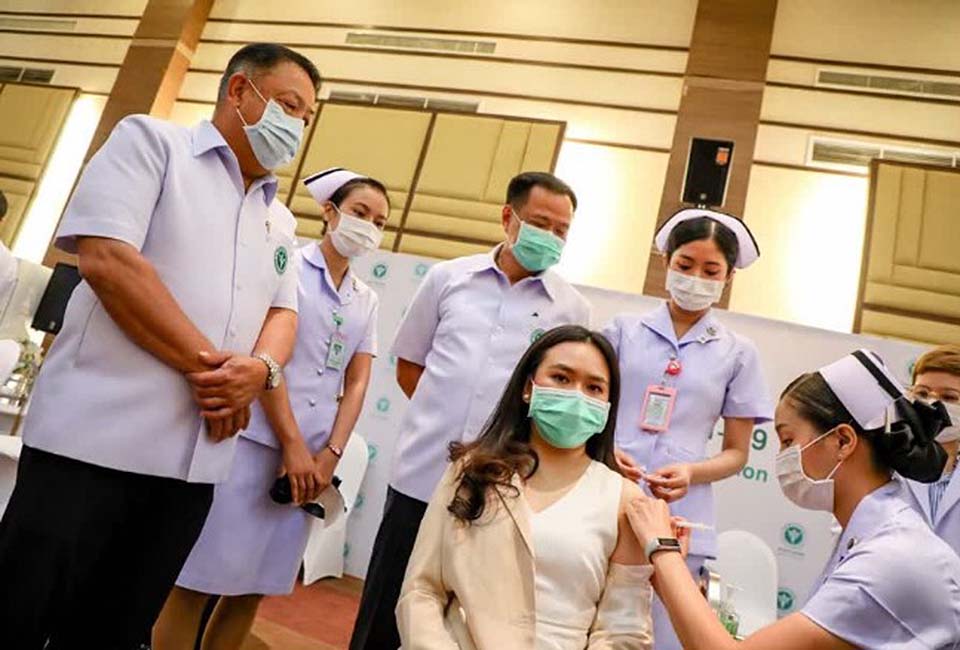
With a push back against AstraZeneca’s COVID-19 vaccine rollout in Thailand due to emerging reports of blood clots in some vaccinated people, leading to an unexpected suspension in European countries, the vaccination campaign in Thailand continues with China-made Sinovac’s vaccine being given to the first group of people.
Some high-profile government officials are among the people receiving Sinovac’s vaccine at Bamrasnaradura Infectious Diseases Institute, including Deputy Government Spokesperson Traisuree Taisaranakul, the Department of Health Director General Dr Suwanchai Wattanayingcharoenchai, as well as some executives of the Ministry of Public Health, with the Deputy Prime Minister and Minister of Public Health Anutin Charnvirakul present at the hospital to provide support.
Sinovac’s Coronavac vaccine from China is the first vaccine type to arrive in Thailand for a mass rollout. The first 200,000 doses arrived in Thailand late last month and are now being distributed to people in priority groups.
So far, 33,621 people have now received the first dose, 76.9% of whom are medical professionals, 12% officials with potential exposure to infected persons, 1.2% people with chronic diseases, and 0.3% villagers in high-risk areas. 9.6% of the first dose recipients figure, still need further clarification as to which group they belong in.
By areas, 116,520 doses of the vaccine have already been distributed to 13 first priority provinces, namely Chiang Mai, Tak, Nakhon Pathom, Nonthaburi, Pathum Thani, Bangkok, Chon Buri, Samut Prakan, Samut Sakhon, Samut Songkhram, Ratchaburi, Surat Thani, and Phuket.
The number of first dose recipients has now reached 36.3% of the first rollout phase target. Most of the recipients, some 91.12%, report no reaction to the jabs, while 8.88% reported mild to moderate reactions such as vomiting, muscle pain, and inflammation at the injection site. (NNT)





